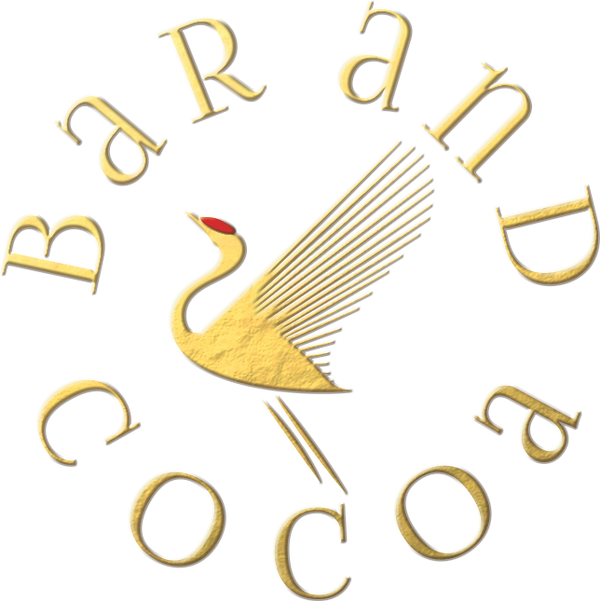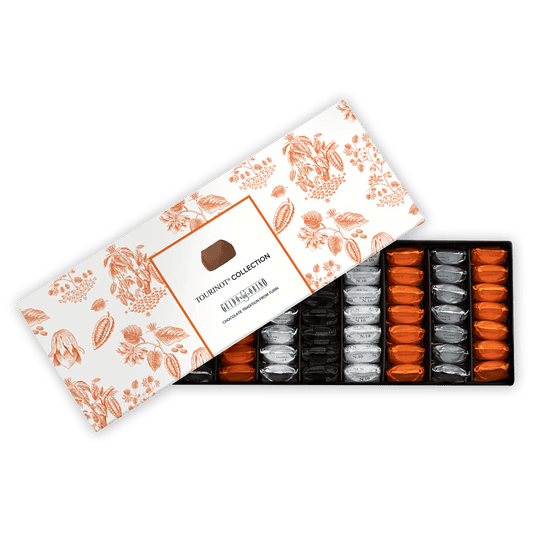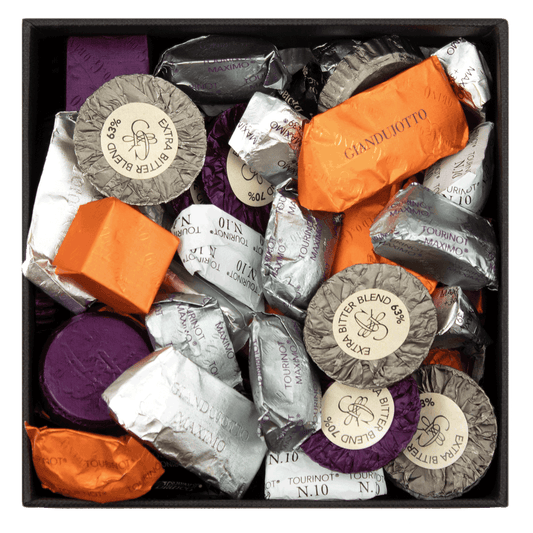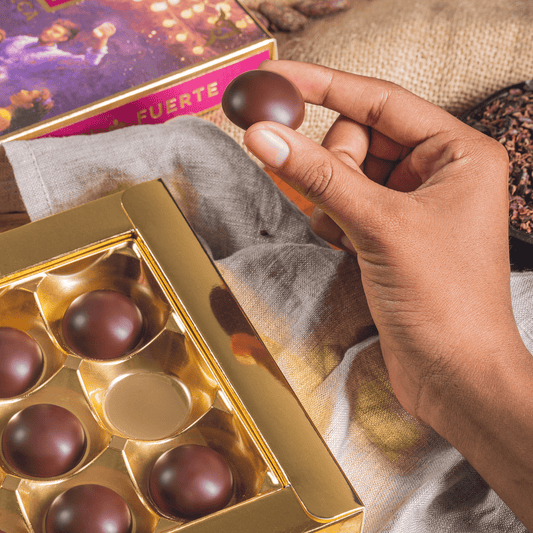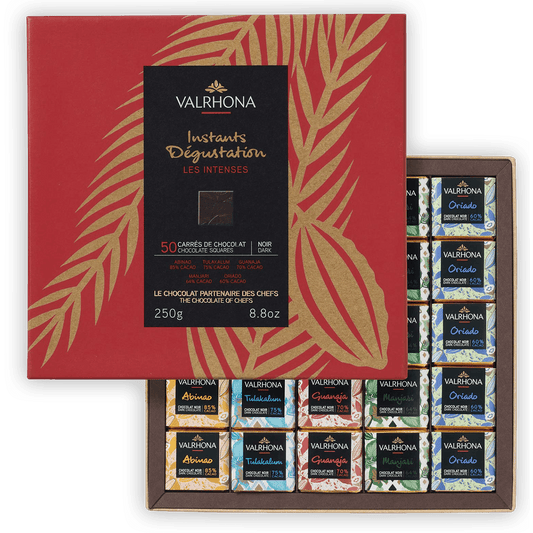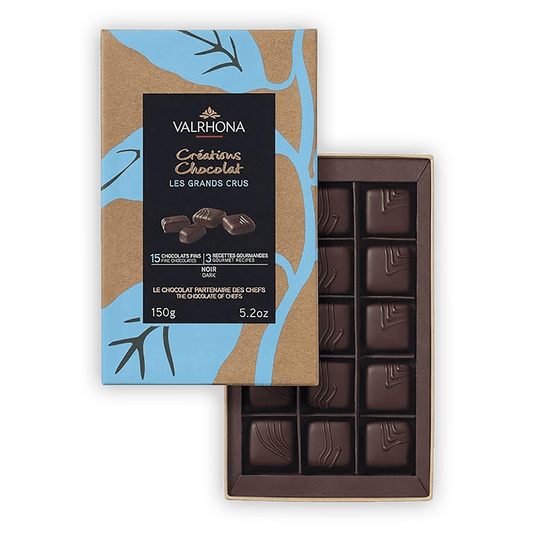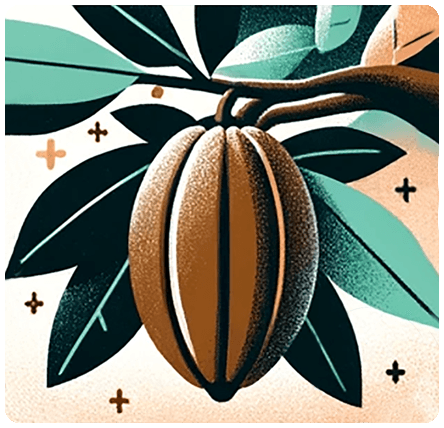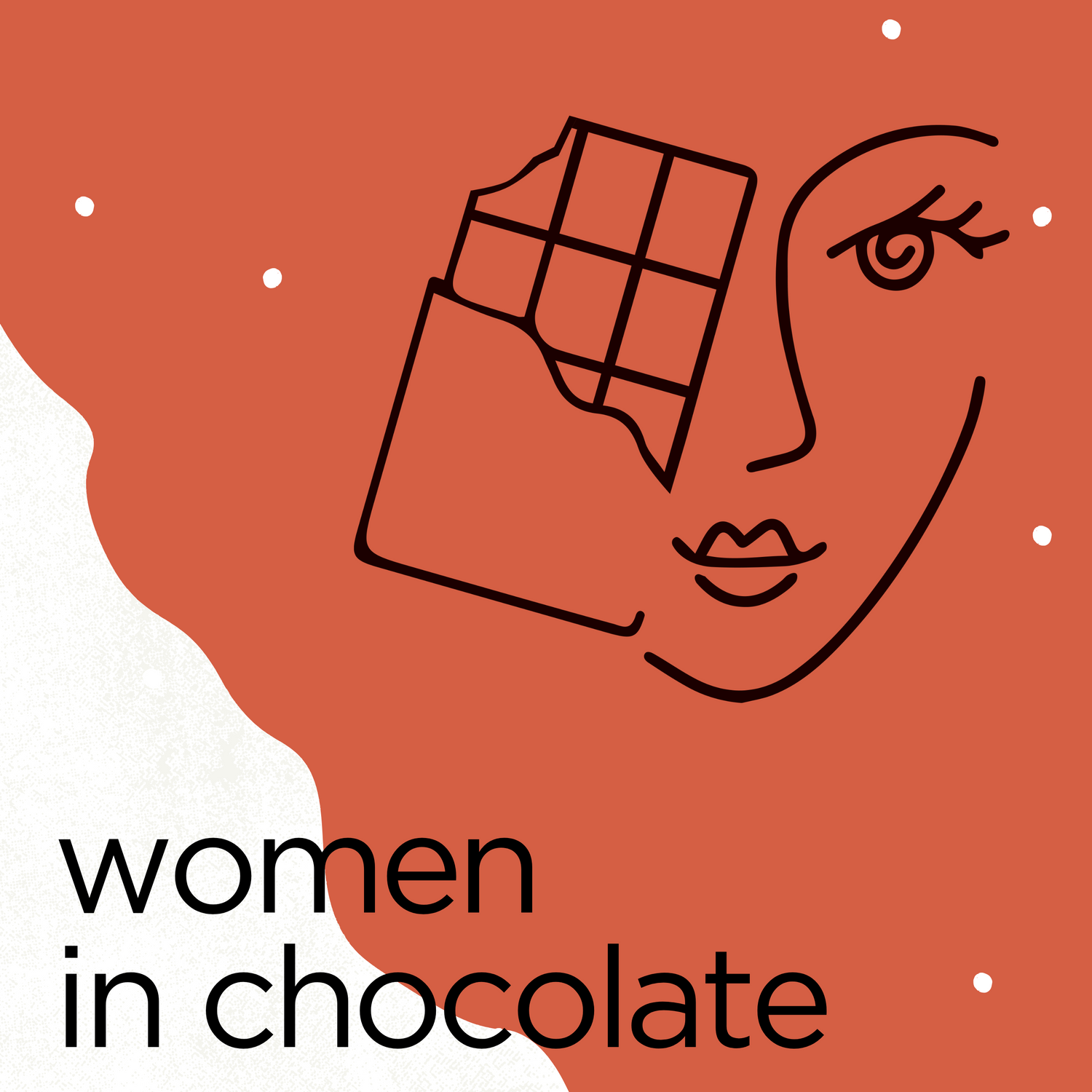Modern Practices to Make Cocoa More Sustainable & Ethical
Shop Our Popular Gifts
FAQS
What makes Bar & Cocoa different?
At Bar & Cocoa, we're not just another chocolate shop; we're a chocolate experience. We meticulously curate a selection of the finest chocolates from artisanal makers around the globe. Our focus is on quality, ethical sourcing, and sustainability. We go the extra mile to educate our customers about the complexities of cacao cultivation and chocolate making through detailed product descriptions, flavor profiles, and origin stories. When you shop with us, you're not just indulging in a treat; you're becoming part of a community that values the art and science of chocolate making.
What is bean to bar chocolate?
Bean to bar chocolate is chocolate that is made from scratch by the same producer, starting from the raw cacao beans and ending with the finished chocolate bars and treats. This process allows the chocolate maker to control every aspect of the chocolate making, such as roasting, grinding, conching, tempering, and molding. Bean to bar chocolate is often more flavorful, nuanced, and ethical than mass-produced chocolate. It reflects the artistry and craftsmanship of the maker and the quality and origin of the cacao.
How do you source your chocolate? Is it ethical and sustainable?
We source our chocolate from award winning craft makers who use high-quality cacao beans and go beyond fair trade. We work with over 50 fine chocolate makers from around the world who share our values and passion for real chocolate. Some of the countries we source our chocolate from include Peru, Vietnam, Brazil, Colombia, Nicaragua,, Philippines, India, and many more. We are always on the lookout for new and exciting origins and makers to add to our collection.
Do you have vegan, or keto-friendly or soy free chocolate?
Yes, we do! We have a variety of chocolate options that cater to different dietary preferences and needs. You can browse our collections of organic chocolate, vegan chocolate, keto-friendly chocolate, sugar-free chocolate, dairy-free chocolate, gluten-free chocolate, soy-free chocolate, nut-free chocolate, and more on our website. We also provide detailed information on each product page about the ingredients and allergens of each product.
How do you pick your chocolate makers?
When it comes to selecting our chocolate offerings, we're basically the chocolate sommeliers you never knew you needed. Our process starts with rigorous research and tastings. Yeah, it's a tough job, but someone's gotta do it. We scour the globe for artisanal and craft chocolate makers who share our commitment to quality, ethical sourcing, and innovation in flavor.
We scrutinize everything from cacao origin to production methods and flavor profiles. Only the best of the best make it into our curated collection, offering you a world-class chocolate experience in every bite. Each bar has a story, a unique flavor profile, and the power to transport you to a different part of the globe. We're not just selling chocolate; we're offering an edible journey.
